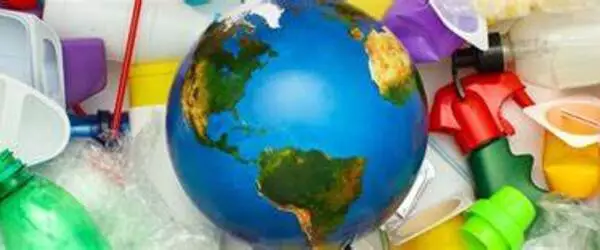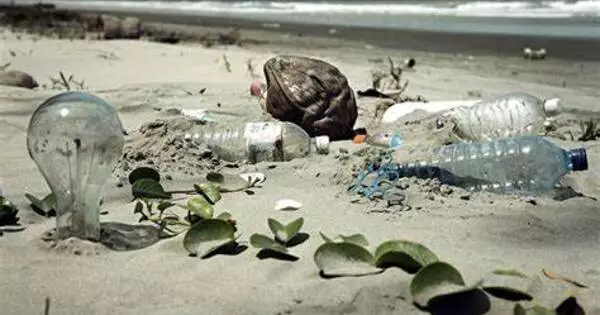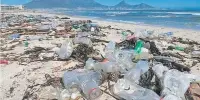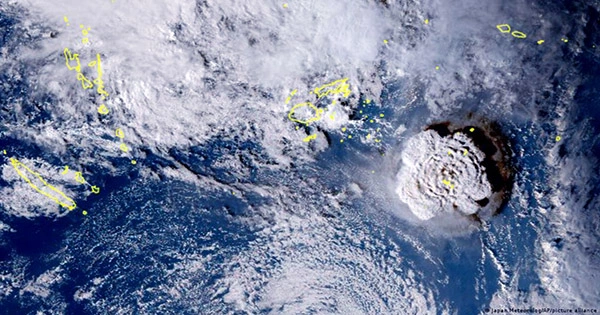According to researchers, the new Global Plastics Treaty must address the issue at its root. On Monday, an international negotiation meeting (INC-3) in Kenya will begin with the goal of developing a legally binding treaty on plastic pollution. Researchers argue in the journal Science that the treaty must prioritize “upstream” issues such as reducing total plastic production and consumption, phasing out hazardous chemicals, and addressing fossil fuel subsidies.
They highlight a “worrying” level of emphasis on downstream recycling and waste management when the true solution must address the entire life cycle of plastics. They argue that the treaty must be comprehensive, with a greater emphasis on early intervention and the people, places, and ecosystems most impacted by plastic pollution.
“Right now, simply too much attention and capital is focused ‘downstream’ – recycling and cleaning up plastic already in the environment, in many cases just after a single use,” said Dr Mengjiao (Melissa) Wang of Greenpeace Research Laboratories at the University of Exeter.
“That is important work, but it can only be part of the solution if done in a safe, environmentally sound, and socially just manner.” Removing the mess while creating more is a doomed strategy. We cannot recycle our way out. An effective treaty must be comprehensive, covering everything from fossil fuel extraction and plastic production to recycling and removing waste that already pollutes our land and ocean.”
When we speak to negotiators, they give us a political ‘reality check’ about balancing ambition with getting a treaty agreed upon in due time.
Dr. Wang
Currently, “downstream” recovery and recycling receive 88% of investment dollars, while “upstream” reuse solutions receive only 4%. This imbalance, according to the authors, stems from the “fossil-fuel-entwined political economy of plastics,” which continues to accelerate production, consumption, and waste, exacerbating the triple Planetary Crisis of climate change, biodiversity loss, and pollution.
They claim that the treaty’s zero draft “disproportionately emphasizes waste management investment while ignoring opportunities” for more efficient and cost-effective upstream strategies such as reduction, redesign, and reuse.
The researchers say the treaty should require polymer manufacturers to pay a “substantial fee pegged to the number of primary plastics produced,” define criteria for strong and independent Extended Producer Responsibility schemes, and ensure both public and private financing aligns with the zero waste hierarchy by prioritizing upstream strategies.

An effective Plastics Treaty to close the back door for fossil fuels
The new treaty has the potential to become a global mechanism, filling a critical gap left by the Paris Agreement. “The problem of plastic pollution is huge, and it can feel overwhelming,” said Dr. Lucy Woodall of the University of Exeter.
“However, there are opportunities and challenges at every stage of the plastics life cycle, beginning with the extraction of fossil fuels.” Global climate governance aims to reduce the use of fossil fuels, but they can still be extracted and used to make plastics, making the Plastics Treaty an important opportunity to close this “back door.”
The majority of the scientists from the Scientists’ Coalition for an Effective Plastics Treaty highlight several other points that the treaty must include in three letters to Science.
“One vital step is to focus on ecosystems,” said Dr Woodall. “Once in the environment, plastic litter can entangle and choke wildlife, and plastic objects can act as a reservoir for invasive species and concentrate other pollutants. Plastics can also break down into potentially toxic micro- and nanoplastics.”
The treaty’s zero drafts used terms such as “hotspot” and “cleanup” – putting the focus on concentrations rather than the natural systems and their specific context, therefore the well-being and livelihoods of nature and people these pollutants affect are ignored.
“This implies that the plastics problem can be solved without considering ecosystem restoration and the disproportionate burden of plastic pollution in some ecosystems,” Dr Woodall said. “Vibrant ecosystems are vital for biodiversity and human health, so protecting them should be the center of our approach.”
‘Chemical simplification’
Chemicals in plastics are a major impediment to addressing global plastic pollution. Current regulations do not require manufacturers to track or publish information on harmful chemical levels.
The authors advocate for “chemical simplification,” which includes significantly reducing the production and use of particularly hazardous chemicals, as well as increasing transparency and traceability throughout the entire supply chain, as one of the many steps required to ensure products can be safely and effectively recycled.
The researchers are hopeful that an effective treaty can be agreed upon – but some countries are expected to resist more ambitious language and delay the process. “When we speak to negotiators, they give us a political ‘reality check’ about balancing ambition with getting a treaty agreed in due time,” Dr. Wang told reporters.
“In return, our role as scientists is to provide a scientific reality check on the magnitude of this problem and the solutions that can actually work to return us to the Earth’s safe operating space. We need a treaty that is holistic and ambitious, tackling every stage of this problem – extraction, production, resource allocation – to stop the build-up of plastic waste and harmful chemicals in our planet’s precious ecosystems.”
















